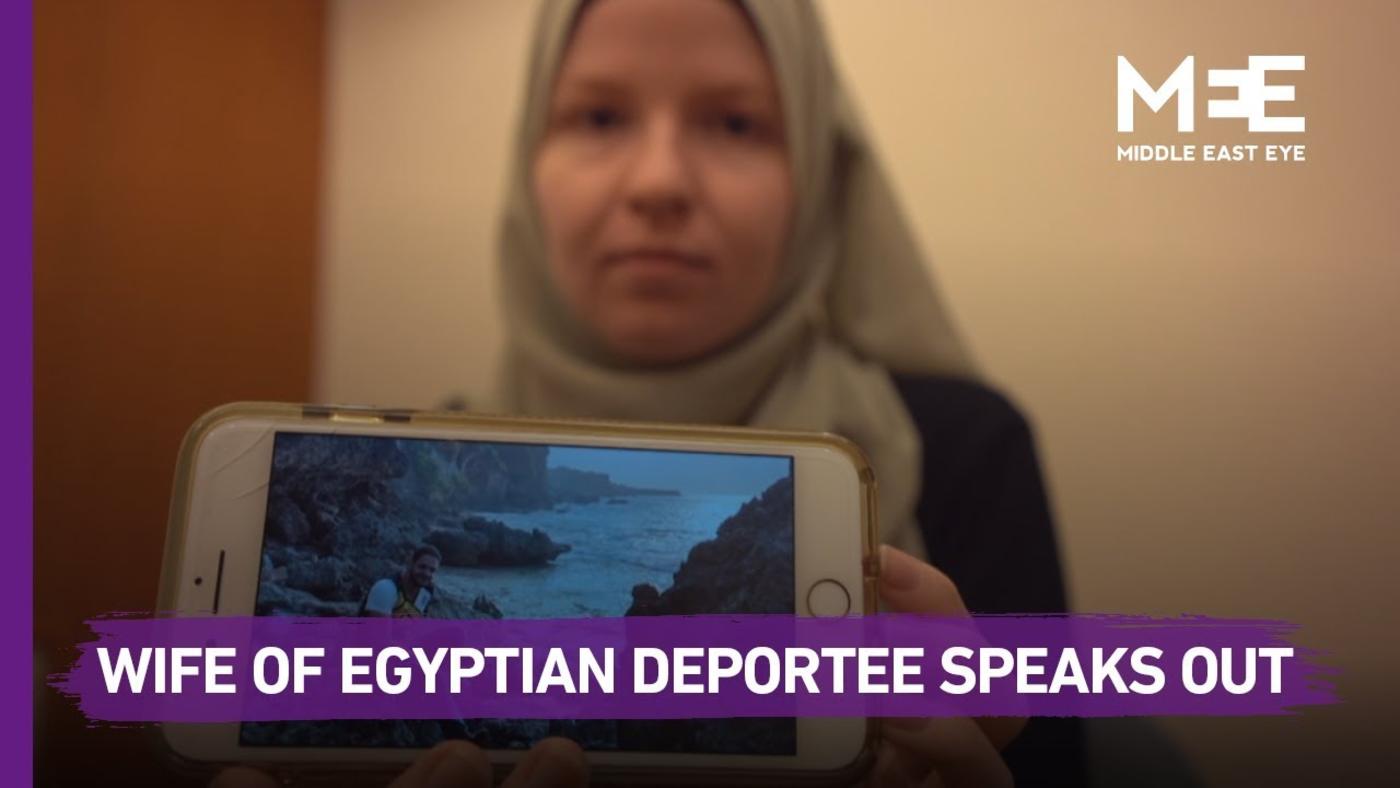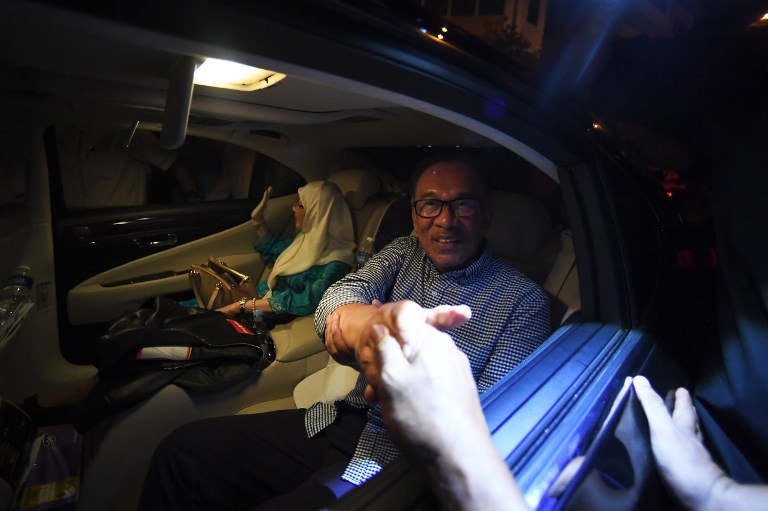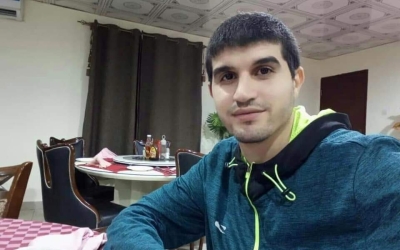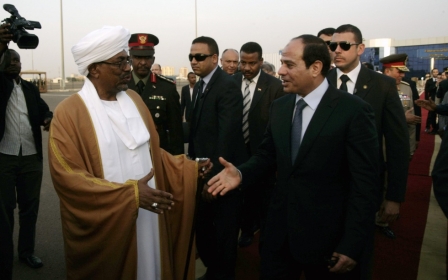'No one’s safe': Fears grow for four Egyptians deported from Malaysia
Four Egyptian men have disappeared since being deported from Malaysia and their families fear they are being tortured in Egypt, the wife of one of the men has told Middle East Eye.
'I already know they hurt him the first time. I don’t want to know what they’re going to do this time'
- Jodie Harris, wife of Abdullah al-Hinnawi
Malaysia suddenly sent the men back to Egypt in early March, but their arrival was never publicly confirmed, according to Jodie Harris, the Australian wife of Abdullah al-Hinnawi, 28, who says they have been kept in the dark.
The men believed they had been arrested as part of common immigration raids on refugees and migrants living in Malaysia. But shortly before their deportations, they found out that Egypt had requested their extradition on security grounds.
“They can be doing anything, anything to him,” said Harris, breaking down in tears as she considered the danger for her husband, who had been imprisoned in Egypt before. “I already know they hurt him the first time. I don’t want to know what they’re going to do this time.”
“Because they have disappeared, they’re probably in Egypt and they’re hiding them and they’re doing whatever they want to them.”
New MEE newsletter: Jerusalem Dispatch
Sign up to get the latest insights and analysis on Israel-Palestine, alongside Turkey Unpacked and other MEE newsletters
Malaysia’s Inspector-General of Police Mohamad Fuzi Harun claimed the deportees had confessed to being members of the Muslim Brotherhood and were involved in buying tickets for members of an armed Tunisian group.
But the decision to deport them has since been criticised by Anwar Ibrahim, the leader of Malaysia’s ruling People’s Justice Party, who is expected to become the next prime minister, having been jailed by the previous government during the last election.
In a statement released after the deportations were announced, Ibrahim claimed neither he, nor 93-year-old Prime Minister Mahathir Mohamad had prior knowledge of the move and warned that Malaysian police should not be deporting people based on intelligence from foreign countries.
“We must be wary of countries that do not follow due process of law,” he said.
A source with knowledge of government discussions said no one inside the government has accepted responsibility for the deportations and suggested most had pretended they did not even realise they had happened.
The source claimed no security threat has been proven and that there are concerns about whether police might use this case against other Arab refugees and migrants in Malaysia.
The country is a popular destination because citizens of most Middle Eastern countries can visit the country on a three-month tourist visa, which they receive on arrival, unlike Europe or North America where getting a visa can be almost impossible for most.
Newlywed student
Harris said her husband had been wrongfully imprisoned in Egypt following the 2011 uprisings and afterwards had been unable to find a job, so eventually ended up in Malaysia where he started a masters degree and had been building a business exporting honey.
“He’s normal, he just sees his friends. He’s been quite excited because he recently got married and he’s been wanting to get married for the longest time but he’s never been financially stable for it and he’s finally reached the point where he’s financially stable.”
Harris denied her husband or any of the other Egyptian men were involved in planning any attacks and that, if they had helped to buy tickets, it was because members of Arab communities in Malaysia often help each other.
Harris said Hinnawi’s lawyers expected that even after he was notified about his deportation, he would still face a trial before he was deported but were then not able to access him.
She said the families found out the four men had been deported through the media, when they described as a security threat.
She tried to contact the airlines to find out information about where Hinnawi and the other men went after they were deported from Malaysia but have had no information. The men are expected to have arrived in Egypt already. The Egyptian government did not respond to MEE's request for comment.
'No one's safe'
Amnesty International Malaysia said the Egyptians deported were at risk of enforced disappearance, torture, prolonged detention and unfair trials.
"We urge the Malaysian government to respect the principle of non-refoulement and ensure that those at risk of persecution or risk of irreparable harm in another country, including torture, are not deported,” said the group's executive director, Shamini Darshni Kaliemuthu.
'We’re just trying to get answers from the government'
- Jodie Harris, wife of Abdullah al-Hinnawi
Harris said the children of one of the other men had been expelled from the school after intervention from the Egyptian embassy.
She herself has faced hostility from neighbours since local media reported the police claims that the men were a security threat.
Harris said the deportations have had an impact on the wider Egyptian community in Malaysia, who believe the men were not involved in any terror plots.
“Everyone knows that they didn’t do anything wrong and then for them to just be thrown out like that, it’s like no one’s safe.”
“We’re just trying to get answers from the government. Either just be truthful and clear their names. If you’re going to accuse them of things and not even take them to trial, what basis is [there for] that. You’re just covering things up.”
Middle East Eye delivers independent and unrivalled coverage and analysis of the Middle East, North Africa and beyond. To learn more about republishing this content and the associated fees, please fill out this form. More about MEE can be found here.







